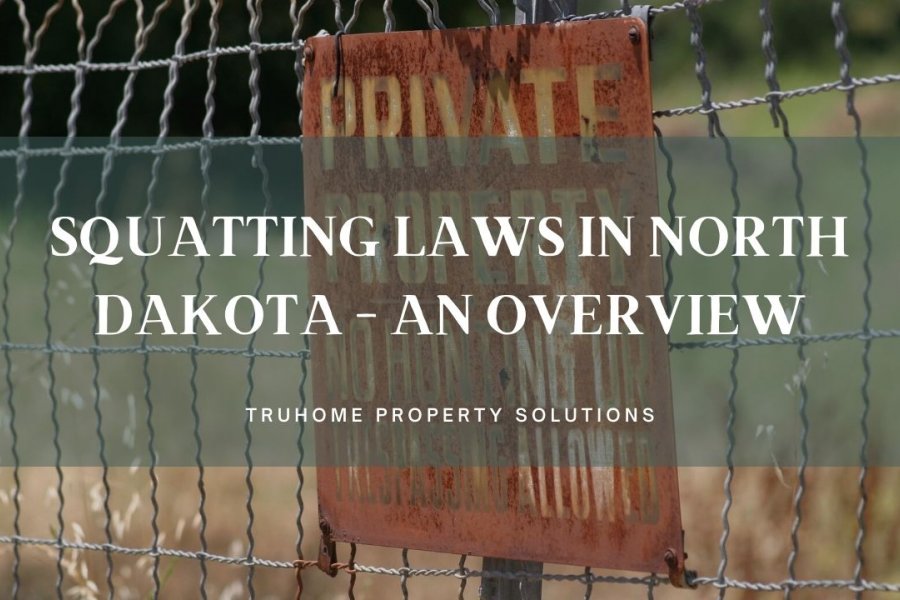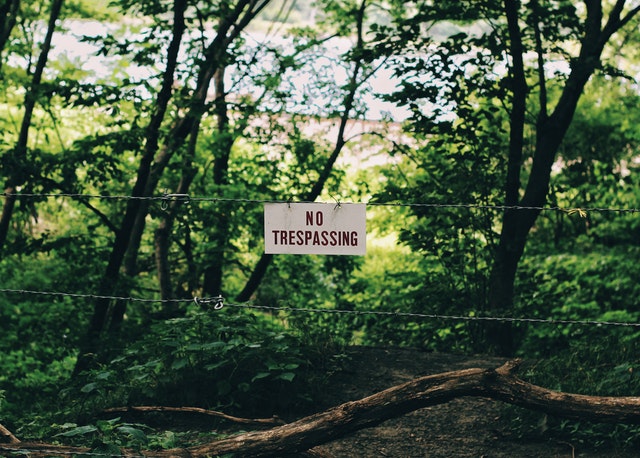
Squatter’s rights are a form of Adverse Possession. If a squatter occupies your North Dakota home for a certain period of time and meets other requirements, they may be able to own your property adversely.
Familiarizing yourself with squatters’ rights in North Dakota is, therefore, crucial. That’s because you’ll know exactly what to do should you find yourself in this situation.
Who Does North Dakota Consider to Be a Squatter?
A squatter is someone who lives in an unoccupied property without the knowledge of the property owner. Typically, the property is either abandoned or foreclosed upon.
It goes without saying that a squatter lives rent-free. Not even a security deposit makes an appearance. Even so, squatting remains legal in the U.S. and is pretty commonplace.
What’s the Difference Between Squatting and Trespassing?
Squatting and trespassing mean two different things. Trespassing occurs when someone enters another person’s property without their permission. It’s a criminal offense.
Squatting, on the other hand, is the practice of occupying someone else’s land or property without permission. Unlike trespassers, the goal of a squatter is to own the property they are squatting on. Squatting can only become trespassing if the property owner has established that they are no longer welcome.
What About a Holdover Tenant?
A holdover tenant is a tenant who stays in a rental property without a lease or rental agreement. The tenant stays at the will of their landlord. If the landlord wishes, they can evict them at any point without serving any notice, unlike those in a lease according to the landlord-tenant laws.

A holdover tenant forfeits their right to make an adverse possession claim once they have been asked to leave their rental premises.
What Does Color of Title Mean?
You are bound to come across this term when researching squatters’ rights in North Dakota. Simply put, color of title means that ownership of a property isn’t regular. The person claiming the property owner may not have one or more of the required registrations, memorials, or documents.
Do Squatters Need to Pay Taxes in North Dakota?
Some states require squatters to pay property taxes to be considered for adverse possession while others don’t. North Dakota belongs to the former group. If a squatter doesn’t have color of title, they must pay taxes for at least 10 years of the required 20 of continuous occupation.
What is Adverse Possession in the State of North Dakota?
A squatter may be able to lay claim on a property if they successfully make an adverse possession claim. The following are the requirements squatters must meet in order to file an adverse possession claim:
1. Continuous Occupation
In North Dakota, a squatter needs 20 years of continuous occupation to file an adverse possession claim. That time can be reduced to 10 years if the squatter has been paying taxes or has color of title. (N.D. Cent. Code. Ann. §§ 28-01-04, et seq.; § 47-06-03).

It goes without saying that the occupation must be “continuous.” The squatter may not leave for weeks or months and then come back to claim it.
2. Exclusive Possession
The trespasser must possess the property or land exclusively. The squatter cannot share possession of the property with other squatters, strangers, or even the property owner themselves.
3. Open & Notorious Possession
The squatter must not try to hide the fact that they are squatting on the property. Anyone, including the property owner, should be able to tell that there is a squatter living on their premises.
4. Actual Possession
Actual possession requires that a squatter treats the property like the actual owner would. A squatter may be able to do so by showing proof of their improvement efforts, such as performing regular maintenance and cleaning up the property.
It’s important to note that making improvements in North Dakota is a recognized way to possess land. As such, a squatter may be able to win an adverse possession case if they have made significant improvements.
5. Hostile Claim
In property law, “hostile” can be defined in either one of three ways. The first definition is “Simple Occupation.” Most states, including the state of North Dakota, follow this definition. The trespasser doesn’t have to know who the land they are trespassing on belongs to.
The second definition of “hostile” is “Awareness of Trespassing.” Here, the trespasser is assumed to be aware of their trespassing actions. They must know that they have no legal right to be on the property.

The third definition is “Good Faith Mistake.” Only a handful of states follow this rule. Here, the trespasser is assumed to have made an innocent, good faith mistake in occupying the property. Their actions may have resulted from an incorrect or invalid deed.
How Do You Get Rid of Squatters in North Dakota?
No special laws exist in North Dakota for the removal of squatters from a property. This means that you must follow the state’s judicial tenant eviction process.
To begin the eviction process, you must serve the tenant with an eviction notice. There are various eviction notice types in North Dakota, but perhaps the most appropriate one to give a squatter is the 3-Day Notice to Pay. This will give them 3 days to either pay all due rent or face being evicted.
If the squatter doesn’t pay all the rent due after the 3 days, you can continue with the eviction process. This means going to court and filing a complaint. The squatter will then be served with a summons requiring them to appear for a hearing.
Generally, such judgments tend to favor the landlord. The only exception is if the squatter has a good defense.
If they still remain on the property after a successful ruling, you’ll need to enlist the sheriff to remove them forcefully.
Bottom Line
No property owner wants to hear that their land is being occupied by someone without their permission. Not only is it a breach of your own property, but you are facing a financial loss in income that you could have acquired by renting out the house. Even worse, it could be taken right out of your possession!
If you have any further questions or are interested in hiring a property management company for your property, don’t hesitate to contact TruHome Property Solutions! We’d be happy to speak with you about our services.
Disclaimer: This blog isn’t a substitute for professional legal services and could be out of date by the time you read this. For further help, please hire a qualified attorney or an experienced property management company. At TruHome Property Solutions, we’re well versed with North Dakota laws. Get in touch to learn more.

